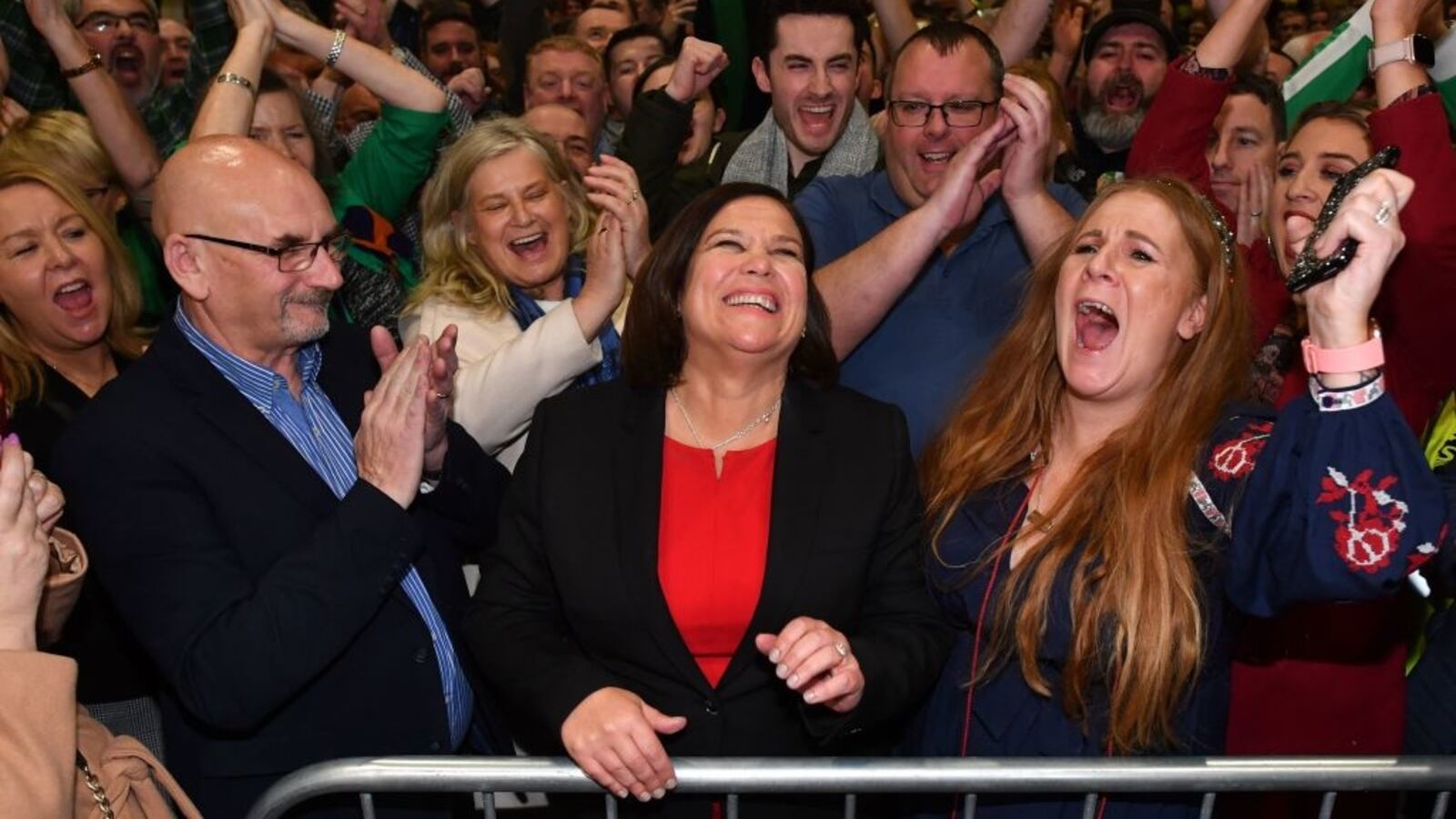DUBLIN—The Republic of Ireland looks set to have former Irish Republican Army members in the parties of government after Sinn Féin, long regarded as a minority outfit, swept the boards with a shock election result this weekend.
There is now feverish speculation that Sinn Féin will enter into a coalition and form a government, most likely with one of the big parties of the establishment.
Counting of votes is a slow process under Ireland’s Single Transferrable Vote system, which allows voters to select multiple candidates in order of preference. However, results coming in Monday indicated that Sinn Féin had collected 24.5 percent of the all-important first preference votes, putting it well ahead of its mainstream rivals.
This prompted Sinn Féin’s leader, Mary Lou McDonald, to declare: “Sinn Féin has won the election. We have won the popular vote.”
In fact, vote-management concerns meant that Sinn Féin only ran 42 candidates, and therefore cannot win a majority seats in the country’s parliament; however the party may collect as many as 37 or 38 of the 160 seats available.
It’s a seismic shock to a duopoly that, since 1932, has seen one of two parties hold power in an uninterrupted sequence: either Fianna Fáil (“Soldiers of Destiny”) or Fine Gael (“Tribe of the Irish”).
Both parties, are, broadly speaking, center-right; instead of dividing along left/right lines, their rivalry goes back to the aftermath of the Irish War of Independence; the grouping that would become Fine Gael reluctantly supported the compromise of the Anglo-Irish Treaty that led to the partition of Ireland, the IRA rejected the treaty out of hand. The treaty was narrowly approved by the Irish parliament, but the divide led to the Irish Civil War between the pro-treaty side and the IRA. The pro-treaty side won; the IRA’s political leaders subsequently fractured into Fianna Fáil and Sinn Féin (“We Ourselves” or “Ourselves Alone”), who maintained close contact with the IRA.
But with the latest seat projections suggesting that Fianna Fáil may win just 41 seats (they expected around 60) and the ruling Fine Gael party possibly reduced to as few as 35 seats, the combined numbers for FF and FG are for the first time in history less than 50 percent of the total number of seats.
During the campaign, both Fianna Fáil leader Micheál Martin and Taoiseach (the term for the Irish premier, which means “Great Chief”) Leo Varadkar sought to remind voters of Sinn Féin’s paramilitary links.
Varadkar described Sinn Féin as “not a normal party” and Martin, when backing the mother of a victim of an IRA punishment squad, said, pointedly: “There can only be one police force in Ireland, there can only be one criminal-justice system, there can’t be alternative systems, and this issue goes to the very heart of the whole Sinn Féin organization in terms of how they operate, and that needs to change.”
Several elected Sinn Féin members, including Dessie Ellis and the outgoing Martin Ferris (who did not stand for re-election as a TD, or member of the parliament known as the Dáil) are known to have been members of the Provisional IRA. Others are steeped in IRA folklore, such as Mairéad Farrell, newly elected in Galway West, who had an aunt of the same name who was shot by British forces in a controversial anti-IRA action in 1988 in Gibraltar. The Irish government has regularly alleged that senior members of Sinn Féin have held posts on the IRA Army Council.
However, younger voters with few memories of the Troubles appeared immune to such messaging, and instead were attracted to Sinn Féin’s leftist agenda.
Although Ireland has undergone an extraordinary economic recovery since its banking sector melted down in 2007, a housing crisis, which has seen rents more than double in 10 years and left some 10,000 people homeless, has triggered calls for a fairer society.
McDonald has said that her preference is to form a government without Fianna Fáil or Fine Gael, but such a ragtag coalition with independents, Greens, and assorted left-wingers would be highly unstable.
In the end, one of the big establishment parties may come out on top after all; betting markets are predicting such an outcome as most likely, after Fianna Fáil softened its opposition to a coalition with Sinn Féin.
Coalition has not tended to be kind to the electoral fortunes of junior partners, however, and some suspect that the patient tacticians of Sinn Féin may prefer to force another general election in which they could run more candidates and perhaps become the outright largest party, rather than get into bed with the establishment they have spent so long decrying.





